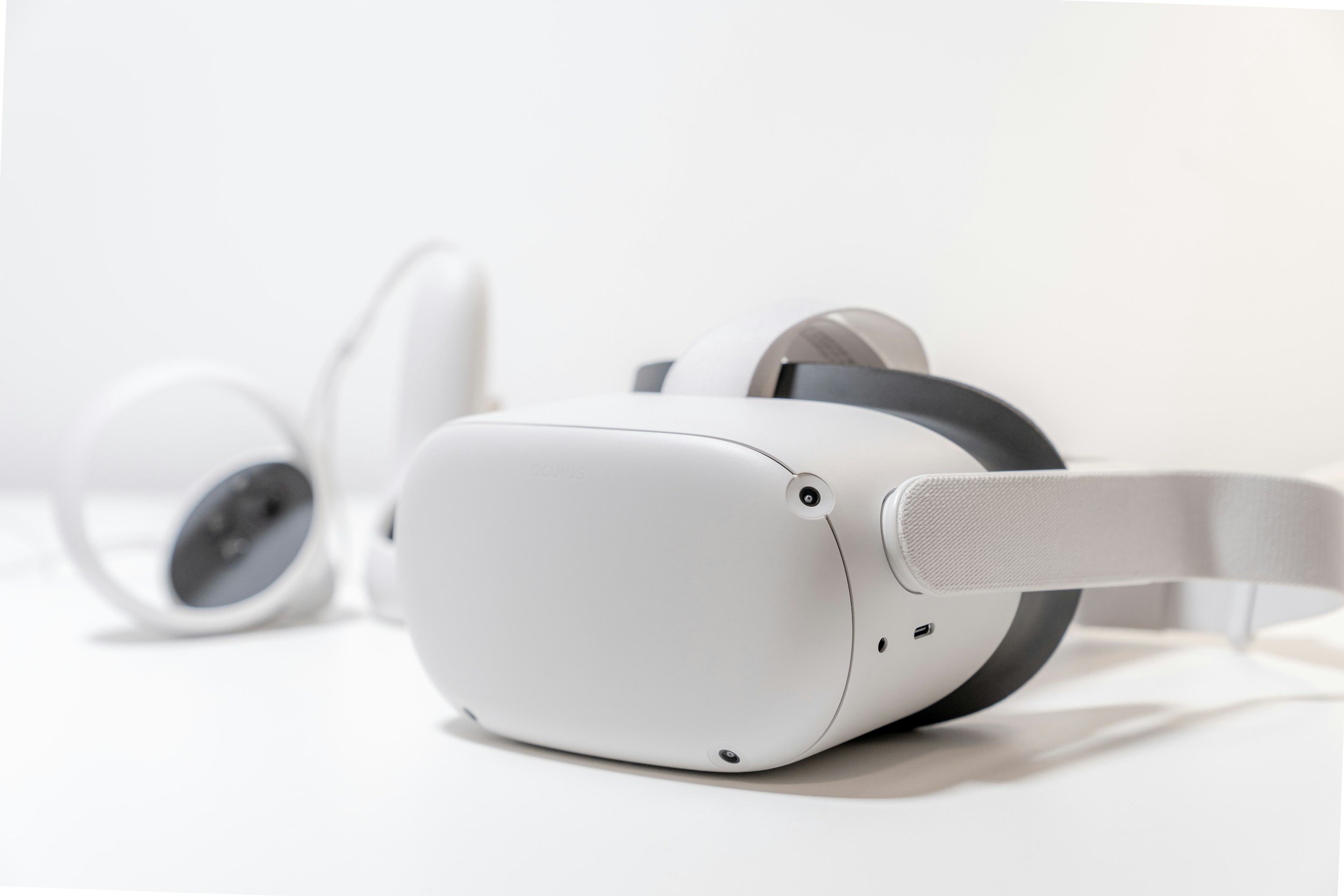Beyond the Screen: How Video Games Sharpen Our Real-World Navigation Skills
For decades, video games have been celebrated as gateways to fantastical realms, offering escape and entertainment in meticulously crafted digital landscapes. But what if these virtual adventures did more than just captivate our attention? What if the intricate worlds we navigate on-screen were subtly enhancing our ability to find our way in the real world? Emerging research suggests that the immersive environments of modern video games hold a surprising power: the capacity to sharpen our spatial awareness, mental mapping abilities, and overall navigation skills in physical space. This article delves into the fascinating intersection of cognitive science, virtual environments, and everyday wayfinding, revealing how our gaming habits might be unexpectedly preparing us for the adventures of reality.
The Art of Digital Design: Guiding Us Through Virtual Worlds
At their core, video games are masterclasses in environmental storytelling and guidance. Developers meticulously sculpt digital landscapes, weaving together intricate architecture, vibrant landmarks, and subtle visual cues designed to shepherd players through complex narratives and challenging objectives. These aren't just aesthetic choices; they are strategic environmental cues – distinctive buildings, winding pathways, prominent signage, or even unique natural formations – all deliberately placed to serve as intuitive navigational aids.
Consider the sprawling cities of an open-world RPG, the dense jungles of an adventure game, or the labyrinthine corridors of a puzzle platformer. Each of these virtual spaces relies heavily on these cues to prevent players from getting lost, directing them towards their next goal, or hinting at hidden secrets. The player's journey through these digital realms is, in essence, a continuous lesson in wayfinding, an iterative process of observing, interpreting, and responding to their surroundings.
From Pixel to Pavement: The Transfer of Spatial Cognition
The idea that skills honed in a virtual environment can transfer to real-world scenarios might seem counterintuitive, yet a growing body of research supports this intriguing possibility, particularly concerning navigation. Studies have begun to reveal that individuals who regularly immerse themselves in certain types of video games, especially action-packed or open-world titles, often exhibit superior spatial awareness and sense of direction compared to their non-gaming counterparts.
How does this transfer occur? It largely boils down to the way our brains process spatial information. As players traverse digital landscapes, they are constantly engaging in the active construction of mental maps – internal representations of the game world's layout. These cognitive maps, much like those we form of our hometowns, allow us to efficiently navigate complex virtual environments. The consistent practice of identifying prominent landmarks, understanding spatial relationships between objects, and predicting routes within these virtual spaces appears to translate into a more robust ability to do the same in physical spaces. The cognitive "muscles" used for wayfinding in virtual realms become stronger, making them more effective in reality.
A Sharper Mind: How Gaming Boosts Core Cognitive Abilities
Beyond specific navigation skills, the demands of video games inherently foster the development of a broader suite of cognitive abilities that are directly applicable to real-world wayfinding and problem-solving.
Games constantly push players to:
Process Visual Information Rapidly: Reacting to dynamic environmental changes and identifying critical cues under pressure.
Make Swift Decisions: Choosing optimal paths or actions in fast-paced scenarios.
Adapt to Changing Environments: Navigating unexpected obstacles or altering routes on the fly.
These cognitive demands serve as a rigorous mental workout, leading to demonstrable enhancements in various cognitive domains. Spatial cognition, in particular, benefits immensely. This umbrella term encompasses essential navigation skills such as wayfinding (determining and following a route), mental rotation (imagining objects from different angles), and spatial memory (remembering locations and layouts). By repeatedly engaging with environmental cues, solving spatial puzzles, and navigating intricate levels within games, players are continuously practicing and refining these skills, building a more agile and robust cognitive toolkit for both virtual and physical worlds.
The Immersive Frontier: Virtual Reality and Navigation Training
The advent of Virtual Reality (VR) technology has ushered in a new era for understanding and harnessing the power of environmental cues in navigation. VR offers an unparalleled level of immersion, allowing users to interact with simulated environments in ways that closely mimic real-world sensory inputs. This unique capability positions VR as a powerful tool, not just for entertainment, but for practical navigation training.
VR applications can precisely replicate real-world settings – from bustling cityscapes to challenging wilderness terrains – and construct intricate training scenarios that push users' navigation skills to their limits without any physical risk. Studies have already showcased the remarkable effectiveness of VR-based training in boosting navigation performance. For instance, researchers have utilized virtual environments to simulate emergency evacuation procedures, allowing individuals to practice crucial decision-making and wayfinding under pressure. Others have trained individuals in complex logistical navigation tasks within virtual warehouses or factories. By leveraging the immersive power of environmental cues within VR, users can safely practice and refine essential navigation abilities, building confidence and competence that directly translate to their ability to navigate the real world.
Navigating the Nuances: Limitations and Future Directions
While the promise of video games enhancing real-world navigation is compelling, a nuanced perspective is essential. Not all video games are created equal when it comes to their navigational benefits. Games that prioritize open-world exploration, intricate level design, or require players to actively construct mental maps (e.g., without constant GPS overlays) are far more likely to offer beneficial environmental cues for skill transfer. Linear, on-rails experiences, while entertaining, may offer less in terms of cognitive spatial training.
Furthermore, the extent to which players benefit from game-based navigation training is influenced by a range of individual differences. Factors such as prior gaming experience, inherent cognitive abilities (like baseline spatial cognition), and even individual learning styles can all play a role. Future research will be crucial in dissecting these interactions, allowing us to better understand how specific game mechanics impact different players and to tailor virtual experiences for maximum real-world navigational gain.
Your Digital Compass: Shaping Our Sense of Direction
Ultimately, video games are proving to be far more than just forms of entertainment. The meticulously designed environmental cues embedded within these digital worlds are subtly, yet powerfully, shaping our navigation skills in the physical world. By engaging with rich, interactive virtual environments, gamers are not just exploring fantastical lands; they are actively developing crucial spatial awareness, refining their ability to construct mental maps, and sharpening cognitive skills that have direct, practical applications in our daily lives.
With the continued advancement of virtual reality technology, the possibilities for leveraging these environmental cues to aid and enhance real-world navigation are expanding exponentially. This exciting frontier holds immense promise for everything from everyday wayfinding to specialized training, opening up new avenues for exploration, discovery, and a deeper connection with our physical surroundings, guided by lessons learned in the digital realm.








Discover the best video games that improve delayed gratification by encouraging patience and long-term thinking. From "Animal Crossing" to "Dark Souls," explore how these games build critical life skills through rewarding gameplay.